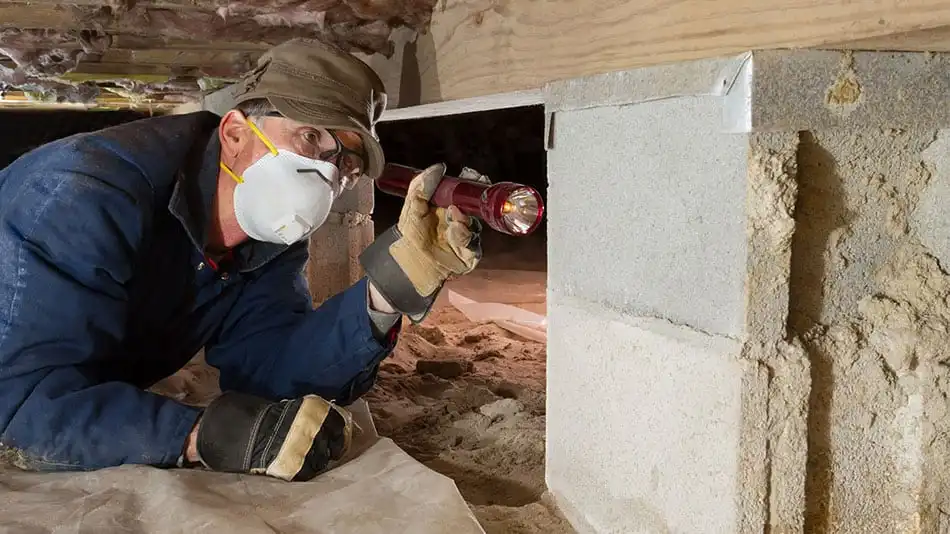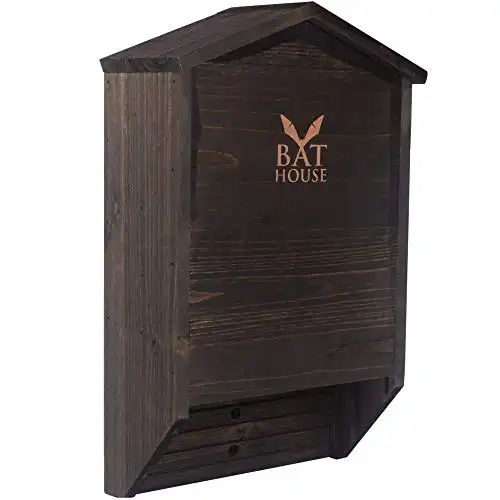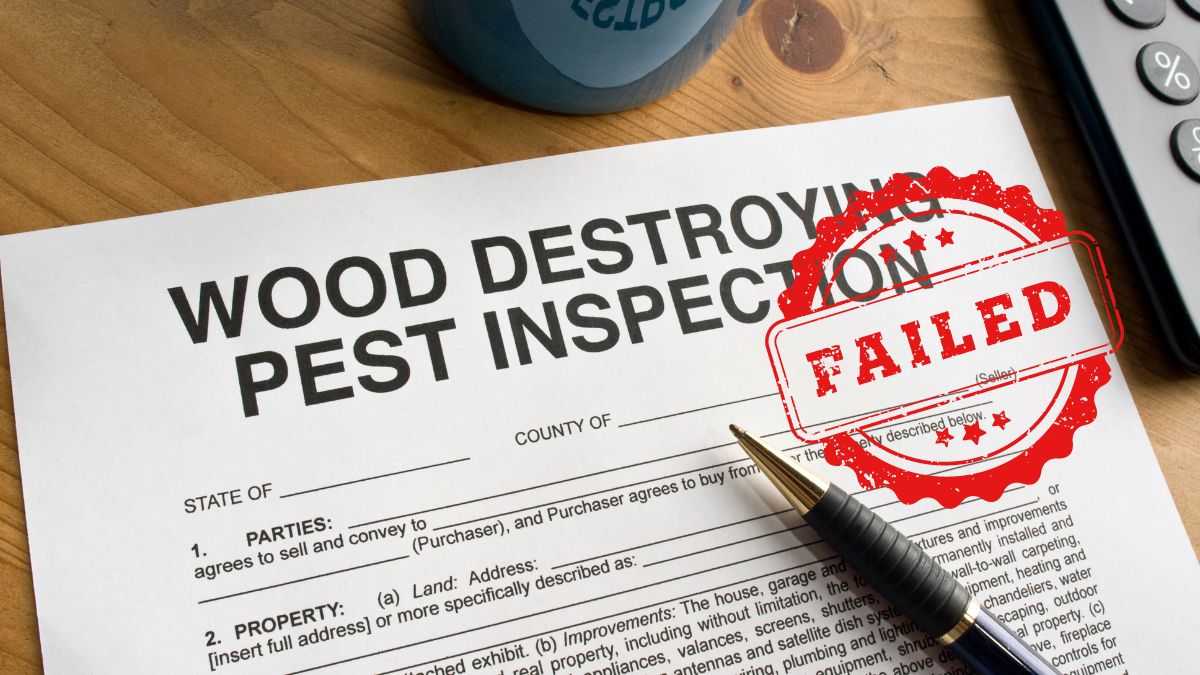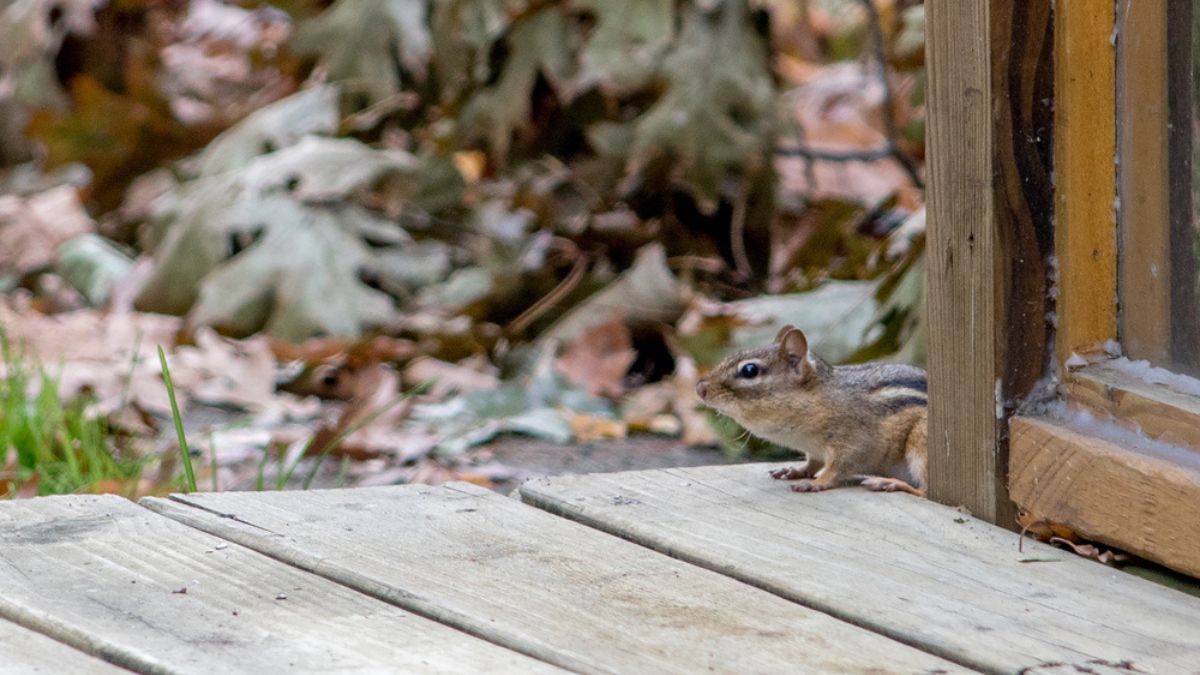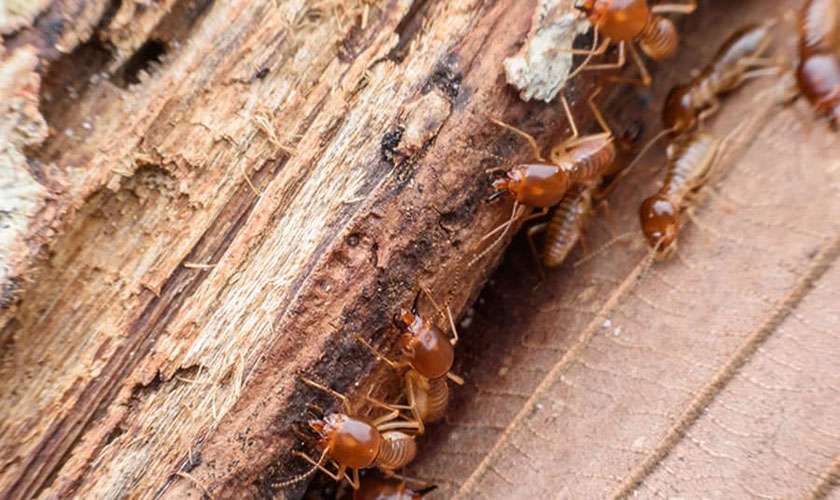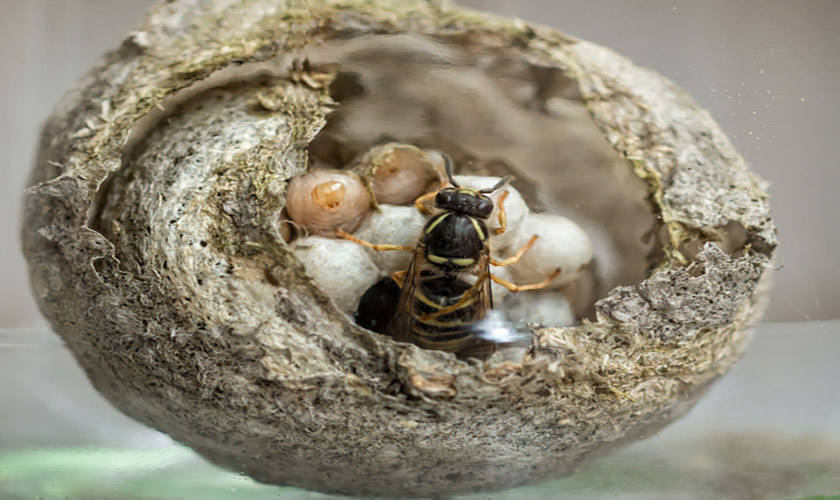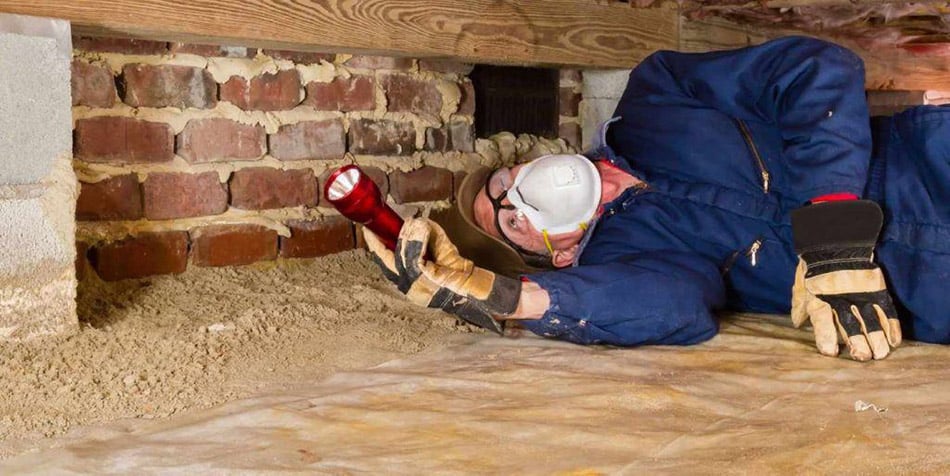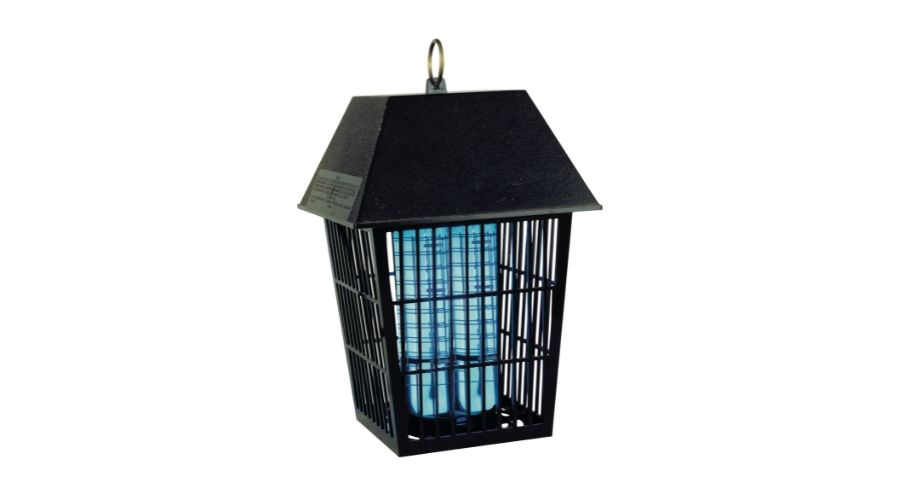
When a late-night storm rolls in, you might be worried about whether or not your bug zapper will be okay out in the rain. It’s also a hassle to get up in the middle of the night to check on it. Rest assured, we got you covered with all you need to know.
Most outdoor bug zappers are made to withstand typical storms and rain showers and are okay to be left outside and turned on. Check to ensure your device is rated for outdoor use.
If so, the main concern is ensuring that the plug and extension cord terminals are not in a location that could get wet.
Get FREE quotes from licensed pest control technicians in your area today. Whether you need spraying for ants, roaches, spiders, ticks, mosquitos, or bed bugs, We Can Help! All technicians are screened, licensed, and insured.
If you are unsure whether you have an outdoor model, this article can help you make the right decision. If you have an outdoor model, we will also have some tips that may help you use it effectively and prolong its lifespan.
Can Bug Zappers Be Used Outdoors?
Many outdoor bug zappers can get wet when it rains or storms, and it is safe to leave your bug zapper on during the wet season.
However, you’ll need to check if it can withstand outdoor usage. The manufacturers have this in mind and have constructed them to handle the elements.
It is not wise to bring an indoor bug zapper outside because it is not as heavy-duty as the outdoor version, making it only used inside.
Types of Bug Zappers
There are many types of bug zappers on the market, each for different areas or applications. Some of the most common bug zapper types include:
- Outdoor lantern style
- Indoor lantern style (hanging or tabletop)
- Indoor briefcase style
- Outdoor solar torches
- Handheld racket style
The two outdoor models (lanterns and solar torches) are waterproof and can withstand rainstorms. You can leave them on all the time, so you will not have to run out and shut them off in the middle of a sudden downpour.
The solar torches should be a set-it and forget-it system that will run whenever the batteries have charged.
If you have purchased an outdoor lantern-style bug zapper, then it is intended that you will be hanging it in a location away from where you sit, so it would not be convenient to switch it on and off all the time.
Are All Bug Zappers Waterproof?
All outdoor bug zappers are water-resistant or waterproof and will be rated to withstand normal rainfall.
The problem arises because many indoor lantern models look similar to outdoor styles. Indoor bug zappers may not be waterproof and should not be used for wet areas.
If they get exposed to water, there will likely be a short circuit in the electrical killing grid or the UV bulb. If this occurs, the best-case scenario is that it simply blows out a fuse at your breaker box, and you can unplug the bug zapper and reset the fuse.
However, in most cases, this will result in a bug zapper not working.
Protecting all indoor models (hanging/tabletop lantern style, briefcase style) and the handheld rackets from the water is wise. Please do not use them on wet surfaces, pools, hot tubs, showers, or other areas.
Using them around water could result in damage to the unit and injury to yourself or others. Only use indoor and handheld bug zappers when there is no chance of them getting wet, and always store them properly when not used.
What Precautions Should I Take With Outdoor Bug Zappers?
Although outdoor bug zappers are waterproof, this rating is intended only for rain or other types of precipitation. The units will break and can cause injury or death if submerged in water.
1. Keep Away From Standing Water
Ensure that you never hang outdoor bug zappers near sources of standing water, like pools or jacuzzis.
2. Watch for the Plug
Another thing to remember is that while the bug zapper may withstand the elements, the plug is not. If the fitting is exposed to water, it can cause electrical shorts, fire, or even harm nearby people.
3. Use Outdoor Outlets
Always use outdoor outlets to power your bug zapper, and ensure they are in a location that will not get wet. Never use multi-socket extension cords or power strips to power outdoor bug zappers you intend to leave for extended periods.
4. Use Waterproof Covers
Protect the plug and outlet with a waterproof cover if you need an extension cord to power an outdoor bug zapper.
Should You Leave Bug Zapper on All the Time?
Outdoor bug zappers should always be left on to disrupt the insect’s breeding cycles. The manufacturers suggest keeping it on day and night for best results and have designed it to tolerate such use.
Indoor bug zappers can also be left on unless it is unsafe to do so due to pets, kids, or other factors. You will need to check your particular unit to ensure it is rated for such use and will not overheat.
Of course, if you are leaving your house for a long time, it may be best to unplug it.
Can a Bug Zapper Catch Fire?
Although a common concern, there is little reason to worry about bug zappers catching fire. According to the International Association of Home Inspectors, bug zappers pose no more fire risk than any other electrical appliance.
In other words, the main concerns are the plugs and any frayed or damaged electrical cords. So, check that all cables are in good condition and that plugs stay away from water sources or wet areas.
Furthermore, they recommended that outdoor bug zappers only be plugged into a GFCI protected outlet.
Can a Bug Zapper Injure Birds & Other Animals?
While the bug zapper has the potential to injure animals and birds, most outdoor units have a plastic protective mesh that would prevent contact with the electric grid. The only possible worry is animals reaching through the protective mesh to the grid, such as hummingbirds.
Keeping it Away from Hummingbirds
Although we could only find a few references to this occurring, if it is something you are worried about, you can take a few precautions:
- Do not place hummingbird feeders anywhere near a bug zapper.
- Only turn bug zappers on at night when the hummingbirds are sleeping.
- Turn off the bug zappers early in the morning before hummingbirds begin to forage.
Beneficial Insects Suffer
While bug zappers do not directly threaten wildlife, you should know that they kill many more beneficial insects than biting ones. Only about 3.3% of the bugs killed are mosquitoes, and many others are pollinators or predators of pest insects.
Eliminating these can negatively affect the ecosystem, as many other species rely on bugs as their primary food source. It is estimated that bug zappers kill about 71 billion non-mosquito insects yearly, taking food away from birds, bats, and fish.
It is also important to remember that pesticides and other chemicals are much worse for the birds and animals than a bug zapper. Chemicals persist in the ecosystem and can cause cancer and other chronic health issues in humans.
In the end, this is a decision you will have to make based on what you think is best for your family and the area where you live.
If you want to ensure that you only target mosquitos and other pest insects with your bug zapper, then look for units specifically for this.
Devices like the Moskinator, Mosquitron, or the MosQiller use a combination of UV light and a fan to suck in and target small flying insects like mosquitoes and gnats rather than the more unselective models typically on the market.
Where is the Best Place to Hang an Outdoor Bug Zapper?
The best place to hang a bug zapper is at the perimeter of your yard or seating area. You do not want to position the unit near where you will be sitting or hanging out because the light will attract more insects to that area.
Some studies found that people were more likely to be bitten by mosquitoes when positioned close to the bug zappers.
Ensure that you attract insects away from you and intercept them on their way into your space. We recommend placing them about 30 feet from the area you will be sitting or hanging out.
It is wise to hang bug zappers at 7 feet off the ground for both practical and safe usage.
Lastly, do not hang the units overhead or over food preparation areas. When the electric shock’s high heat explodes bugs, they can release allergens and microbial pathogens that can irritate your sinuses or even make you sick.
Bugs exploding are a great reason to purchase the bug zapper models with a collection tray to catch the killed insects.
Do I Need to Maintain an Outdoor Bug Zapper?
Inspect outdoor bug zappers to ensure they are working correctly and clean them up.
Every month, you should inspect the bug zapper to ensure it is still working and the weather or animals have not damaged it. It would be best to empty any bug traps not to accumulate too many bug parts.
Also, inspect all cables and extension cords to ensure they are not damaged or exposed to water.
Once a year, you should also clean off the killing grid to ensure that it does not become too caked in dead insects. The more insects trapped on the grid, the less effective it will be.
There are a few steps you can use to clean the killing grid:
- Turn off the unit and unplug it from the outlet to ensure it has no power.
- Remove any tray or traps and empty them of bug parts. Wash them with a hose or in the sink and allow them to dry
- Use an old toothbrush or laundry brush to scrape dead bugs from the killing grid. Be sure not to damage the grid by pushing too hard.
- Wipe the grid with a wet paper towel or rag to remove any grim or caked-on debris
- Inspect the hood and all working parts before reassembly
How Else Can I Eliminate Mosquitos Around My Home?
There are several ways to reduce the populations of mosquitoes around your home and keep them from biting you. Many researchers suggest that these methods can be more effective than big zappers in eliminating pest insects.
1. Eliminate Breeding Grounds
The best way to prevent adult mosquitos is to break the life cycle where it starts – with the eggs and larvae.
Mosquitos lay eggs in or near water sources. These eggs can persist for a long time, but they can go from egg to larvae in just 24-48 hours when ready to develop.
From there, it takes only 2 to 3 days for the larvae to develop into flying adults. Any standing water can become a breeding ground for mosquitoes in less than a week.
To present this, be vigilant about eliminating any sources of standing water around your home, including old buckets, plastic bags, tires, or other items. Also, clean and remove all leaf litter from your gutters and drainages.
If you have birdbaths or ponds, change the water regularly or add insectivorous fish or tadpoles.
If that is not possible, or for areas that flood intermittently, you can use the biological control called BTI. This bacteria comes in powder form or looks like sand and, when placed in water, produces toxic compounds to mosquito larval but is entirely safe for humans and pets.
You can also reduce their numbers by keeping the grass cut short and trees well-trimmed, as these are areas where the mosquitoes will rest or breed.
2. Use Mechanical Barriers and Fans
If possible, screen your outdoor patio or deck to prevent flying insects. You can also buy screened tents or gazebo for camping or other outdoor activities.
Because mosquitos and gnats cannot fly against the wind, a strong fan can be a safe and effective way to protect yourself.
3. Other Methods
Wearing insect repellents containing DEET is one of the most well-proven ways to avoid mosquito bites. Also, wear long clothing to prevent bites outside during peak hours (dusk or dawn).
Some also suggest working with nature to solve the problem by attracting animals who eat mosquitoes. You might consider adding a bat box to your garden, as bats consume between 600 and 1,000 mosquitoes daily and are not a threat to your family or pets.
Your outdoor bug zapper works best as part of a more holistic plan for eliminating mosquitoes from around your home and community. So, implement various methods, and coordinate with neighbors to reduce the areas where mosquitoes breed and develop.
Get FREE quotes from licensed pest control technicians in your area today. Whether you need spraying for ants, roaches, spiders, ticks, mosquitos, or bed bugs, We Can Help! All technicians are screened, licensed, and insured.


